New security deal grants US ‘unimpeded’ access to Papua New Guinea bases
A recently inked defense agreement has granted the US military an “unimpeded access” to Papua New Guinea (PNG) military bases, as part of Washington’s push to increase its military footprints in the Pacific to counter the influence of China.
The full text of the 15-year agreement was tabled in Papua New Guinea’s parliament on Wednesday evening and obtained by AFP for the first time, elucidating the details that have been closely guarded since the pact was signed in May.
“The defense cooperation was drafted by the United States and Papua New Guinea as equals and sovereign partners,” US Secretary of State Antony Blinken said in the signing ceremony last month.
With Papua New Guinea’s agreement, the United States will be able to station troops and vessels at six key ports and airports, including Lombrum Naval Base on Manus Island and facilities in the capital Port Moresby, PNG’s capital.
Access to Lombrum could be used to reinforce US facilities on Guam to the north, which could be a key base in the event of a conflict over Taiwan.
The agreement grants Washington “unimpeded access” to the sites to “pre-position equipment, supplies and materiel,” and have “exclusive use” of some base zones, where development and “construction activities” could be carried out.
Another contentious section of the agreement gives US authorities the “exclusive right to exercise criminal jurisdiction over US personnel.” however Papua New Guinea officials have denied this section in the contract.
Prime Minister James Marape has been forced to defend the deal against a wave of protests and criticism in the country’s universities, with some opponents questioning whether Papua New Guinea was signing away its sovereignty.
“We have allowed our military to be eroded in the last 48 years,” Marape said to the parliament on Wednesday evening. “Sovereignty is defined by the robustness and strength of your military.”
Former Prime Minister Peter O'Neill slammed the deal with the Americans and warned that the United States is only considering their own interests, which do not align with PNG’s security as it will become stuck in the middle of a war between two superpowers.
“America is doing it for the protection of its own national interest, we all understand the geopolitics happening within our region,” he said.
The Oceania country, which sits on an abundance of natural resources, is located in a key geopolitical zone near critical shipping routes and now is set at the center of a diplomatic tug-of-war between Washington and Beijing. PNG was the site of fierce battles during World War II.
China has repeatedly warned the US about hyper-militarizing the region and destabilizing its security, but Washington is still expanding in the Asia and Indo-Pacific region as part of its hostile agenda against Beijing.
Washington is trying to woo Pacific nations with an array of diplomatic and financial incentives in return for strategic support, after similar moves by Beijing.
Last month, when asked whether China’s defense pact with PNG’s neighboring Solomon Islands is a factor in renewing ties, US Secretary of State said that the agreement “is not about any other country.”
Moreover, the US State Department has promised to provide $45 million in new funds as it worked with PNG to strengthen economic and security cooperation, including protective equipment for the Papua New Guinea Defense Force (PNGDF), climate change mitigation, and tackling transnational crime and HIV/AIDS.
US President Joe Biden had been scheduled to pay an official visit to Papua New Guinea to sign the pact but his visit was canceled due to Washington’s debt crisis.
PNG, with a population of nearly 10 million people, is the most populous Pacific island nation, located just north of Australia.

Trump eyes Ukrainian rare earth minerals in exchange for military support to Kiev
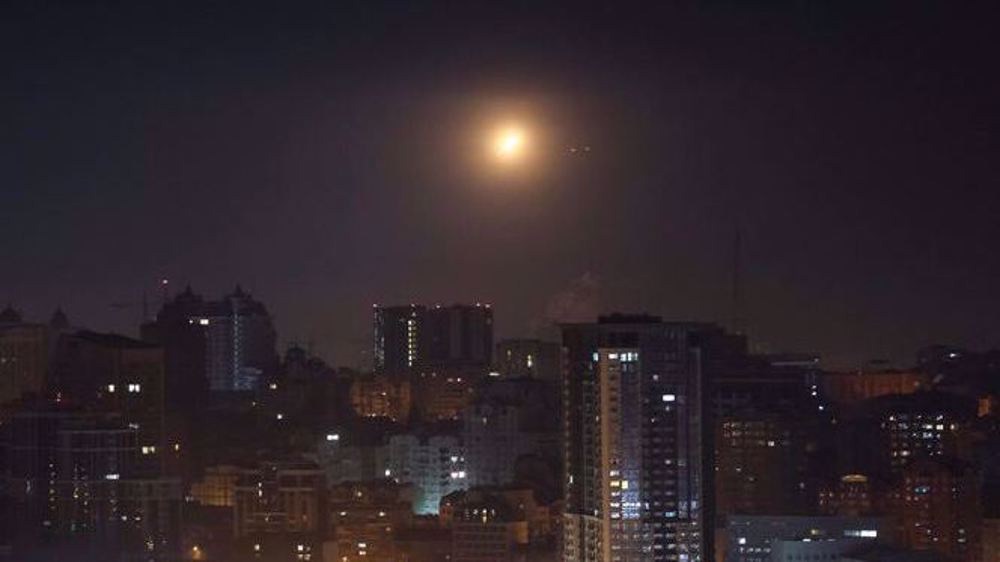
Russia launches ‘record’ strikes on Ukraine: Kiev
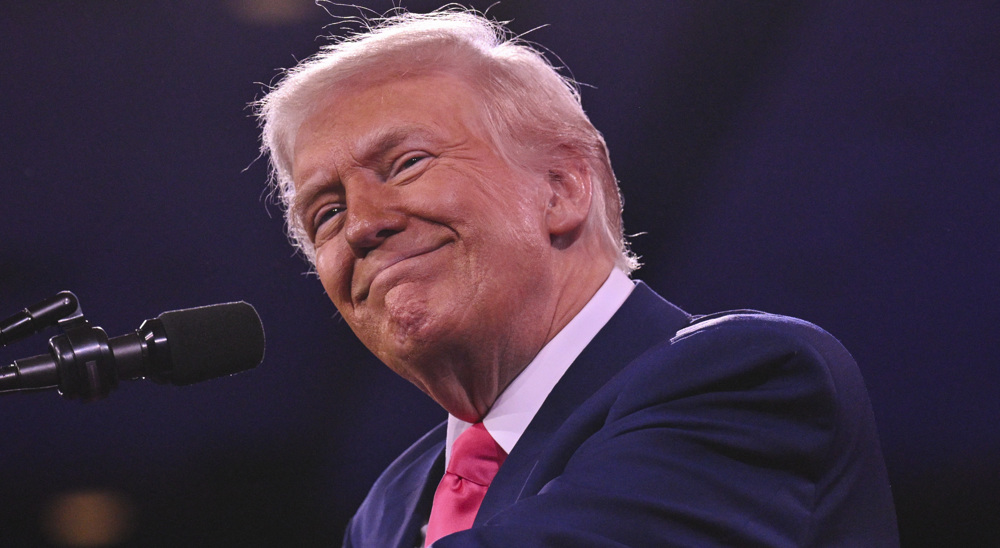
Trump wants return on Ukraine aid: ‘We’re getting our money back’
VIDEO | Gazans striving to survive with bare hands
'Shocking attack on free expression': Canadian politician slams arrest of pro-Palestine activist
West Bank Palestinians fear Gaza style destruction as Israel escalates raids
Hamas: Ibrahimi Mosque massacre testament to Israel’s criminal policy
Trump eyes Ukrainian rare earth minerals in exchange for military support to Kiev
Six Gaza children, including newborn girl, die of cold weather as Israel blocks aid
Iran rules out nuclear talks with US amid ‘maximum pressure’ campaign
Israeli tanks roll into West Bank first time in 20 years as prelude to forcible annexation


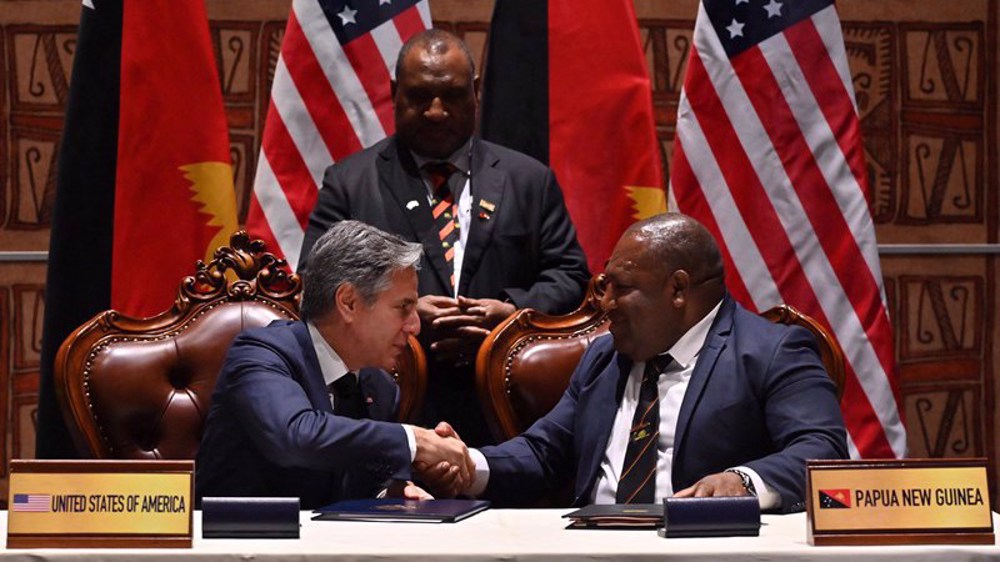
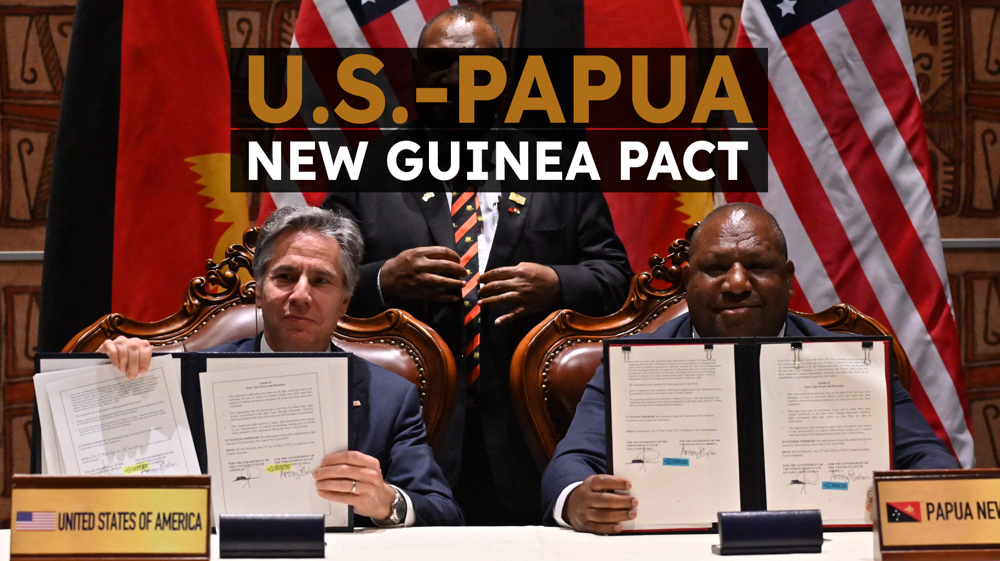
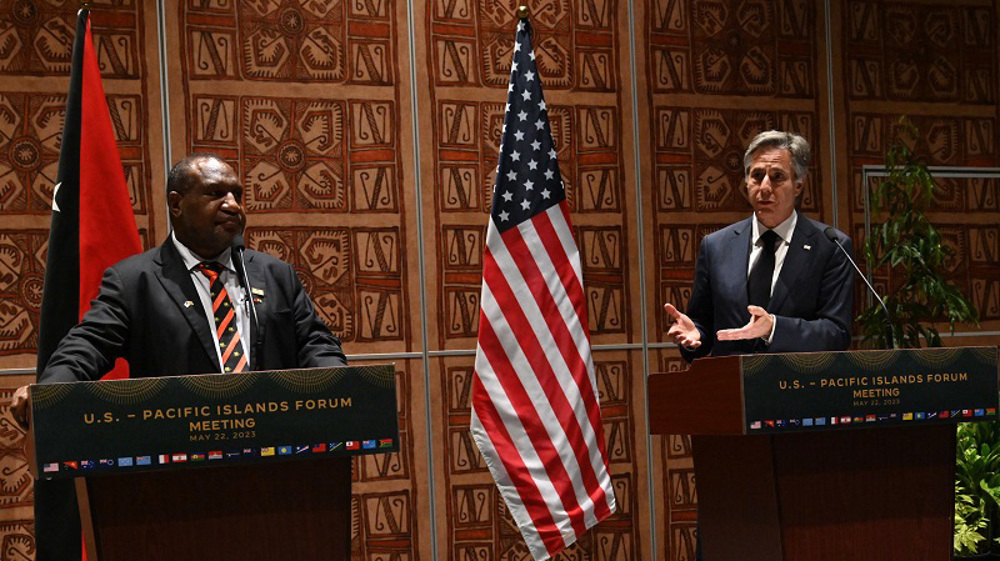



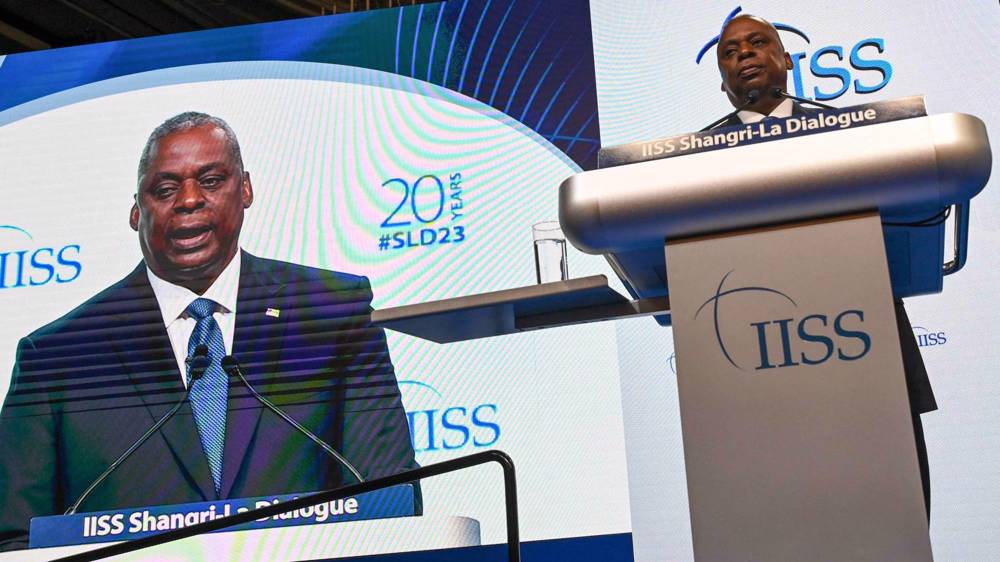
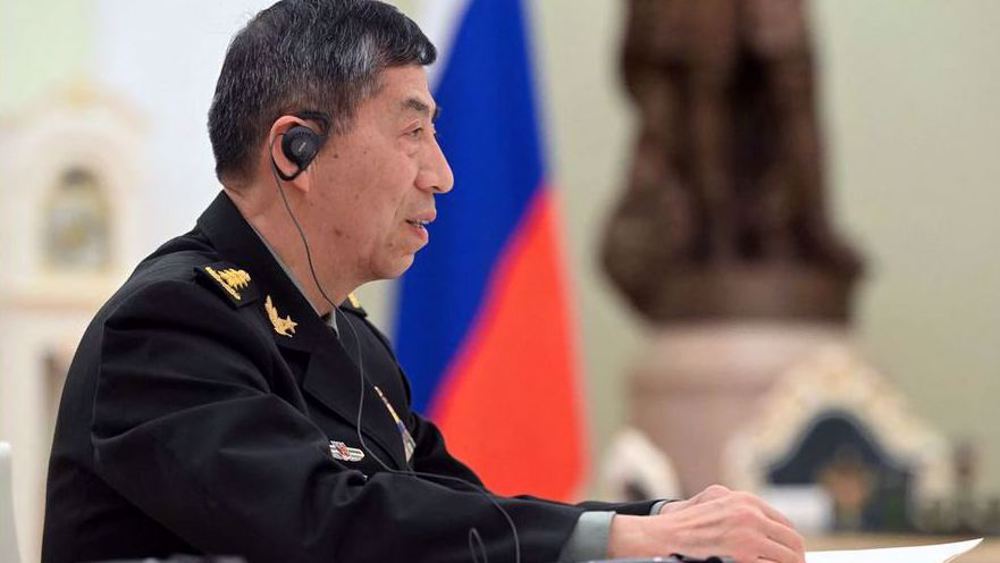
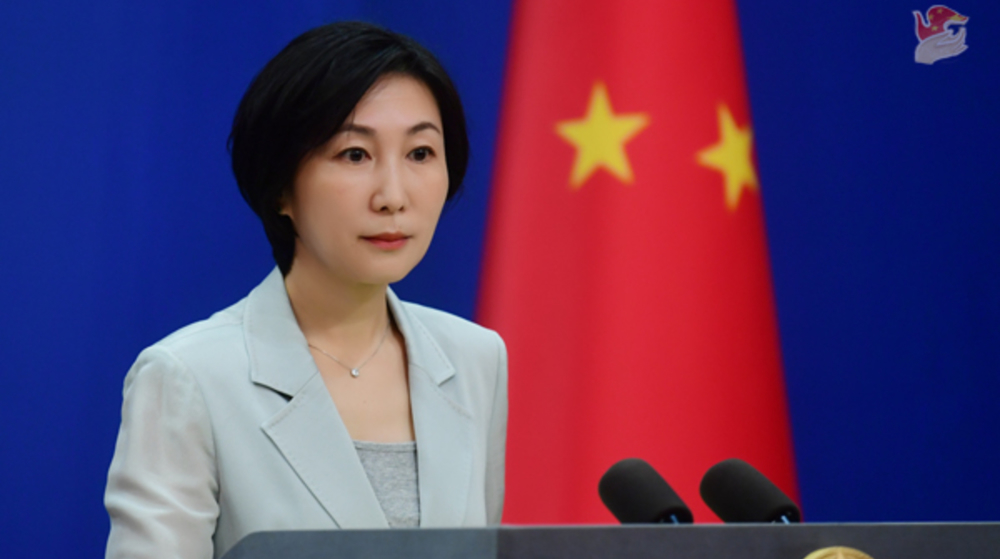

 This makes it easy to access the Press TV website
This makes it easy to access the Press TV website